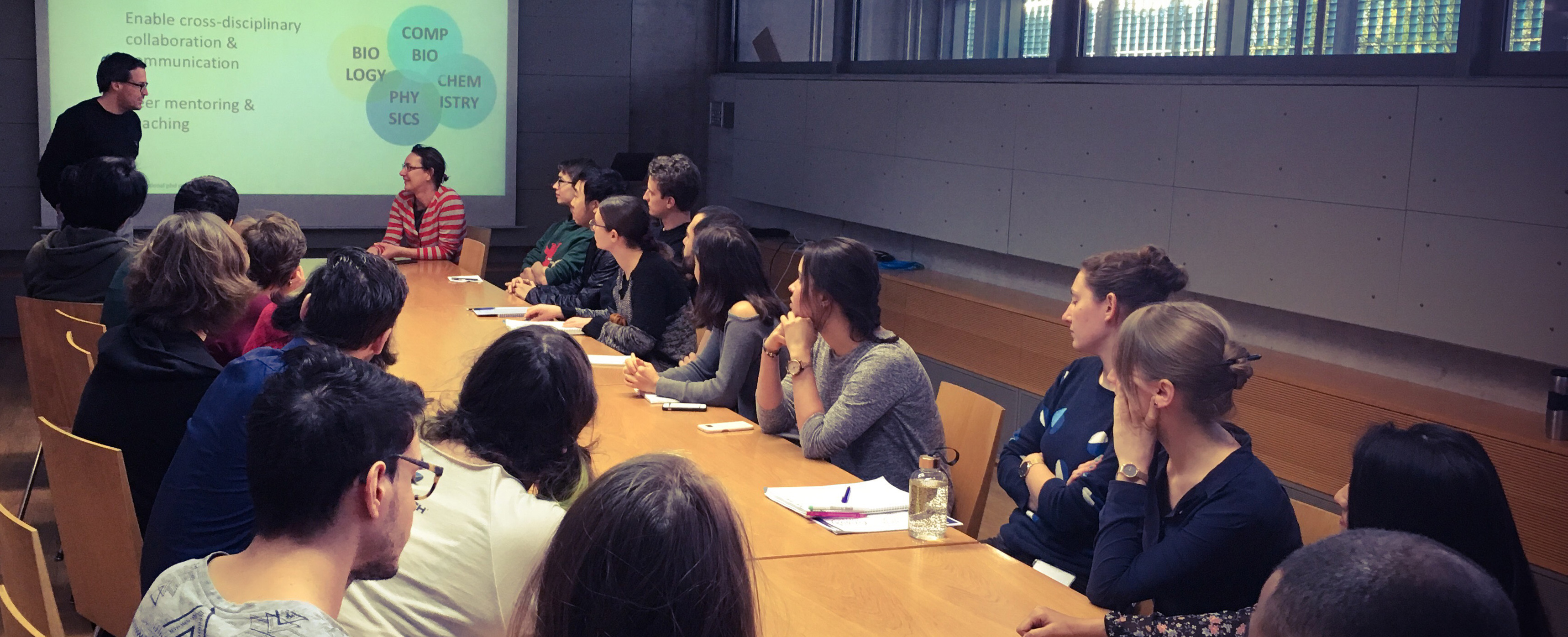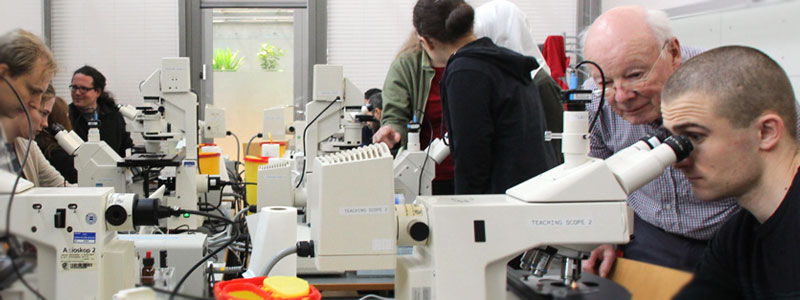Call is closed
Methods & Technologies
Our primary focus is research. Consequently, we promote learning by doing: gaining practical knowledge while performing top-notch scientific research. In our tutorials and seminars, we emphasize interdisciplinary understanding and communication, harnessing the tools from multiple disciplines to crack big questions. Guided by dedicated mentors, supported by expert scientific services, and complemented by unique learning opportunities, our PhD Students keep abreast of the most recent developments in science and technologies.
Training begins with shared curricular elements, including our Predoc Course. Though the path toward thesis varies, many PhD students enjoy our famous Light Microscopy course using our state-of-the-art facilities. Possible elective courses may include Statistics & Computational Methods, Image Analysis, or Advanced Experimental Methods. All PhD Students also receive instruction in Good Scientific Practice and may choose soft skills training in areas such as communication, writing, or presentation through the Planck Academy or the Graduate Academy of the TU Dresden.

Predoc Course
The introductory Predoc Course focuses on the scientific process, learning the ropes of doing science itself, while bringing our talented PhD students from both experimental and theoretical backgrounds together in creative teams. For 4 weeks, Predocs work on exciting scientific projects proposed by interdisciplinary RGL tandems. One past project focused, for example, on fitting evolutionary models of structures to Cryo-EM data. Other projects tasked the PhD students with experimentally exploring and theoretically modeling diffusion using artificial cells; or combining the power of single cell sequencing and live imaging in the context of organoids. Further teams investigated the role of phase transition in zygotic genome activation or membrane biology. Pursuing the projects introduces them to the expertise of the PIs, postdocs, and other PhD students from the participating labs in a practical manner, while also learning to make use indispensable MPI-CBG services and facilities. Throughout this intense but rewarding month, frequent lab-meeting-style team meetings and presentations mark progress and build confidence. The hands-on science is complemented by unique scientific process talks given by RGLs and SFLs providing insight into how scientific stories are born.
Elective Courses
We strive to meet the needs of our PhD students with a rotating roster of courses, to that they can learn a wide spectrum of skills, from the basics of new branches of science to advanced methods in their field of expertise. Courses in light microscopy, statistical interference, image analysis with ImageJ/Fiji/Ilastik, data analysis and visualization with R are regularly offered. Lecture series explore principles in developmental biology, physical concepts in biology, and spatiotemporal modeling and simulation of biological systems.

Principles of Light Microscopy
This popular course aims to introduce basic principles of light microscopy to people who feel like beginners in the field. The course is highly practical and engaging. It is suitable for people with no prior formal microscopy training, experienced microscope users who know what button to press but not WHY, and those with good theoretical physics background but little hands-on experience. The course may be of interest to computer scientists and imaging data analysts seeking deeper insight into the process of light microscopy.
Good Scientific Practice
Our Good Scientific Training workshop aims to raise awareness of responsible conduct with regard to research and research integrity. Naturally the basic rules, values, and guidelines of science are presented, but the core of the workshop invites participants to reflect and wrangle with these issues in practice. In an engaging, participative manner, researchers discuss the different forms and degrees of impropriety, ranging from honest error to misconduct. The importance of scientific integrity and what to do in cases of non-compliance with norms will also be discussed.